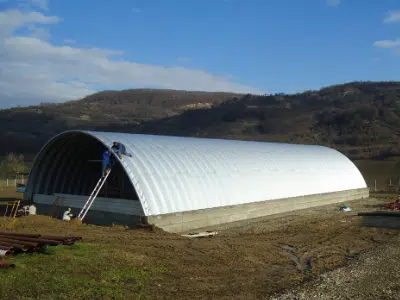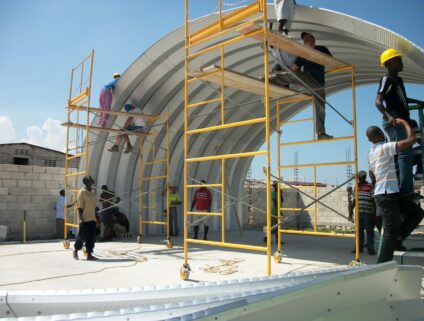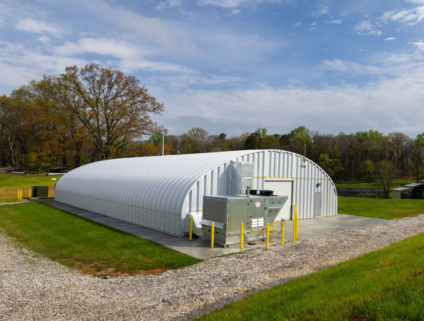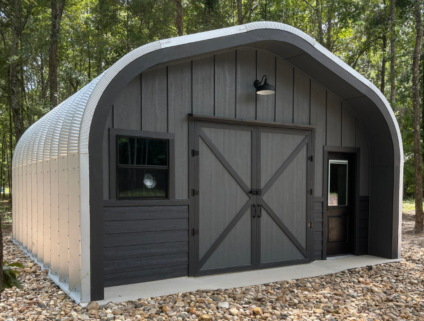SteelMaster’s Buildings Receive CE Marking
Buildings Certified for Europe
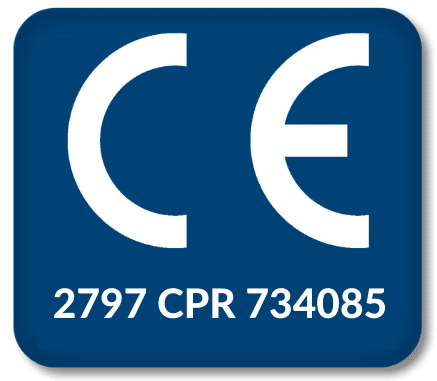 SteelMaster’s buildings have received the CE Marking, meaning our products and operations have been audited and physically inspected to be in compliance with the applicable harmonized standard for steel structures, EN 1090-1.
SteelMaster’s buildings have received the CE Marking, meaning our products and operations have been audited and physically inspected to be in compliance with the applicable harmonized standard for steel structures, EN 1090-1.
Receiving the CE Marking means our buildings conform to strict European quality assurance (QA) standards that regulate the design and manufacture of steel structures installed within the European Union (EU).
Companies who meet with these exacting criteria and that obtain the CE mark have had to allow a third-party organization, known as a notified body, to do an in-depth assessment of the manufacturer’s:
- Training programs
- Safety and engineering practices
- Quality of materials
- Equipment maintenance logs
- Production processes
- Overall product quality
The intensive, multistep audit and inspection lasts until all aspects of the harmonized standard are examined. In order to continue to offer this QA certification, this examination must be conducted every two years.
All SteelMaster customers in the European Union may receive a Certificate of Conformity that can be shown to importers and the appropriate building authorities to state that our products meet the required standards and specifications.
CE Certificate No. 2797 CPR 734085
CE Marking Background
The letters “CE” are the abbreviation of the French Phrase “Conformité Européene,” which translate to “European Conformity.” The CE Marking is used in all EU official documents.
The CE certificate of compliance allows a product to move and be sold freely throughout the European market, but does not imply that a product was made in the European Economic Area (EEA). Products that are traded in the EEA must include a mark of European conformity.
The EEA includes Austria, Belgium, Bulgaria, Czech Republic, Cyprus, Denmark, Estonia, Finland, France, Germany, Greece, Hungary, Iceland, Ireland, Italy, Latvia, Lithuania, Liechtenstein, Luxembourg, Malta, Norway, The Netherlands, Poland, Portugal, Romania, Slovakia, Slovenia, Spain, Sweden, United Kingdom and Croatia. Although Switzerland is not a member of the European Union, for some products it accepts the CE symbol as a declaration of conformity to Swiss national technical regulations.
Categories

